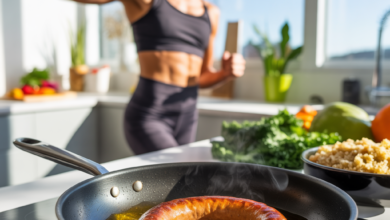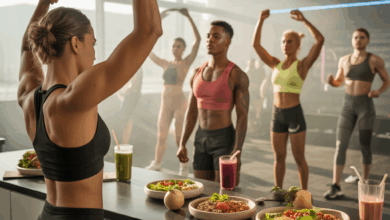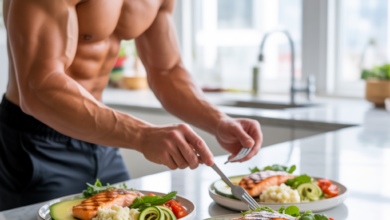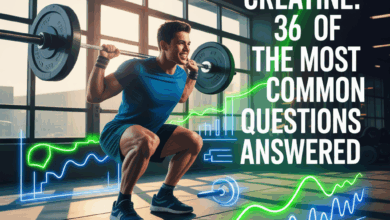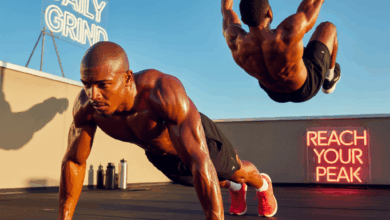How Alcohol Impacts Muscle Building and Weight Gain: What Every Gym-Goer Needs to Know
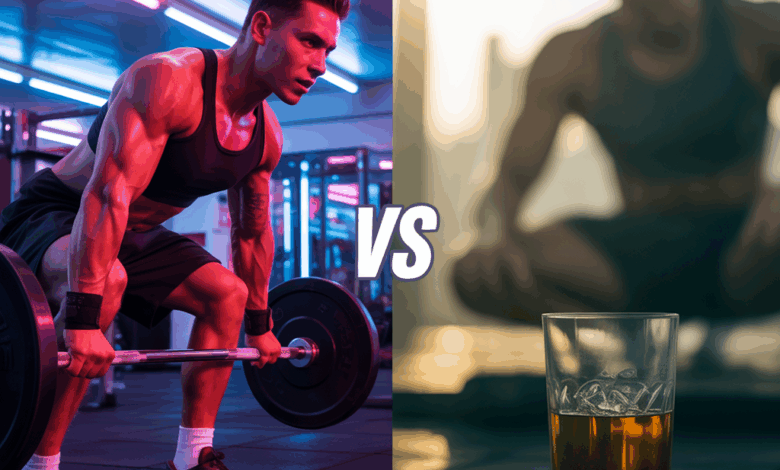
Ever finished a great leg day and rewarded yourself with a few celebratory drinks — only to wake up feeling sluggish, bloated, and two steps behind on your gains? If that sounds familiar, you’re not alone. In this post we’ll explore how alcohol impacts muscle building and weight gain, why that post-party plateau happens, and what practical steps you can take to protect progress without giving up social life.
How alcohol impacts muscle building and weight gain: the science
Alcohol affects the body in multiple ways that directly interfere with muscle growth and body composition. Understanding the physiology helps you make smarter choices.
Alcohol and protein synthesis
Muscle growth depends on muscle protein synthesis (MPS). Even moderate drinking can blunt MPS for up to 24–48 hours after consumption. That means the protein you eat and the stimulus from your workout are less effective at building new muscle when alcohol is in the system.
Hormones: testosterone, cortisol, and recovery
Alcohol can lower testosterone and increase cortisol — a catabolic stress hormone. Lower testosterone reduces anabolic signaling for muscle repair, while elevated cortisol promotes muscle breakdown and fat storage.
Sleep disruption and impaired recovery
Quality sleep is when most muscle repair and recovery happen. Alcohol might help you fall asleep faster, but it disrupts REM sleep and reduces deep restorative sleep. The result: poorer recovery, reduced performance, and slower strength gains.
Hydration, nutrients, and inflammation
Alcohol is a diuretic and impairs nutrient absorption. It can deplete glycogen, reduce muscle fullness, and increase inflammation — all of which sabotage training adaptations and can contribute to fat retention and bloating.
Calories, appetite, and the link to weight gain
Beyond the biological effects on muscle, alcohol contributes to weight gain through energy balance and behavior.
Empty calories and liquid energy
Alcohol contains 7 calories per gram — second only to fat — but with zero essential nutrients. Cocktails, beer, and mixed drinks often include sugar and mixers, quickly stacking hundreds of extra calories.
Increased appetite and poor food choices
Drinking lowers inhibitions and stimulates appetite, which often leads to late-night calorie-dense meals or snacks. That combo — surplus calories + reduced fat oxidation — equals fat gain over time.
Metabolism and fat storage
The body prioritizes metabolizing alcohol over fats and carbs. While your liver processes ethanol, fat burning drops, increasing the chance that dietary fat will be stored rather than used for energy.
Practical tips to limit the impact without quitting alcohol
You don’t have to choose between a social life and fitness. Follow these realistic strategies to reduce the negative effects of drinking on muscle building and weight management.
- Time your drinks. Avoid drinking within 4–6 hours post-workout when MPS is most active. If you want to drink, save it for later in the evening and prioritize post-workout nutrition first.
- Choose lower-calorie options. Opt for spirits with soda water and lime, light beer, or dry wine instead of sugary cocktails.
- Mind portions. Limit to 1–2 drinks and know what counts as a standard drink to manage calories.
- Hydrate and refuel. Drink water between alcoholic drinks and eat a protein-rich meal before you drink to protect muscle synthesis.
- Plan recovery workouts. If you overindulge, switch your next session to active recovery (yoga, brisk walk, mobility) rather than a heavy strength day.
- Improve sleep hygiene. Use blackout curtains, avoid screens before bed, and prioritize consistent sleep to counteract alcohol’s sleep-disrupting effects.
- Limit frequency. Having alcohol-free days (e.g., dry weekdays) allows full recovery and better hormonal balance.
Workout variations for weeks when you drink
If social plans make drinking likely, adjust your training so you don’t lose momentum but also don’t push too hard on days your recovery is compromised.
High-quality training when sober
- Do heavy compound lifts (squats, deadlifts, bench) on sober, rested days.
- Schedule intensity for mornings after alcohol-free nights.
Low-intensity options after drinking
- Active recovery: 30–45 min brisk walk or light cycling to boost circulation and reduce soreness.
- Mobility and core session: 20–30 min focused on movement quality and joint health.
- Short, light full-body circuit: 3 rounds of bodyweight squats, push-ups, and planks if you feel up to it.
These variations protect gains by keeping you consistent without asking your body to perform at peak when recovery is impaired.
Real-world examples: small changes, big difference
Case study A: Sarah, a weekend social drinker who tracked calories, swapped sugary cocktails for two glasses of dry wine, and added one extra protein shake per week. In 12 weeks she maintained muscle mass and lost 3 pounds of fat.
Case study B: Marcus, a strength trainee who used to drink heavily after competitions, reduced to 1–2 drinks and scheduled a rest day after events. His lifts stopped plateauing and his sleep improved, allowing steady progress.
These examples show that moderation and planning beat all-or-nothing thinking.
Frequently Asked Questions
No — a single drink occasionally won’t destroy progress. The problem is regular heavy drinking or consistent post-workout drinking that blunts recovery and MPS over time. Consistency in training and nutrition matters most.
Alcohol can promote fat storage indirectly by adding calories, reducing fat oxidation while it’s metabolized, and increasing appetite and poor food choices. Moderation and mindful intake lower this risk.
Lower-calorie choices like spirits with soda water, dry wine, or light beer reduce excess calories. Avoid sugary mixers and large pours. Hydration and a protein-rich meal before drinking also help.
Conclusion — take control of your progress
Understanding how alcohol impacts muscle building and weight gain helps you make choices that support long-term fitness without eliminating fun. Small changes — timing drinks around workouts, choosing lower-calorie options, hydrating, and prioritizing sleep — add up to better recovery, fewer stalled gains, and less unwanted weight.
Ready to protect your progress? Check out our workout routines for smart training schedules, browse nutrition guides to optimize meals around social plans, and explore wellness tips to improve sleep and recovery. Share your experience in the comments or subscribe for weekly fitness strategies that actually fit real life.

